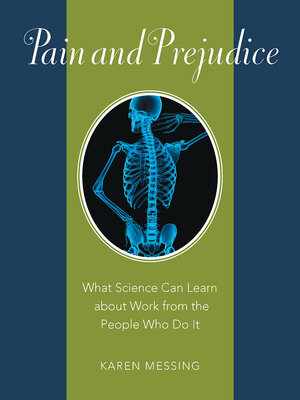Pain and Prejudice
ebook ∣ What Science Can Learn about Work from the People Who Do It
By Karen Messing

Sign up to save your library
With an OverDrive account, you can save your favorite libraries for at-a-glance information about availability. Find out more about OverDrive accounts.
Find this title in Libby, the library reading app by OverDrive.



Search for a digital library with this title
Title found at these libraries:
| Library Name | Distance |
|---|---|
| Loading... |
In 1978, when workers at a nearby phosphate refinery learned that the ore they processed was contaminated with radioactive dust, Karen Messing, then a new professor of molecular genetics, was called in to help. Unsure of what to do with her discovery that exposure to the radiation was harming the workers and their families, Messing contacted senior colleagues but they wouldn't help. Neither the refinery company nor the scientific community was interested in the scary results of her chromosome studies.
Over the next decades Messing encountered many more cases of workers around the world—factory workers, cleaners, checkout clerks, bank tellers, food servers, nurses, teachers—suffering and in pain without any help from the very scientists and occupational health experts whose work was supposed to make their lives easier. Arguing that rules for scientific practice can make it hard to see what really makes workers sick, in Pain and Prejudice Messing tells the story of how she went from looking at test tubes to listening to workers.







